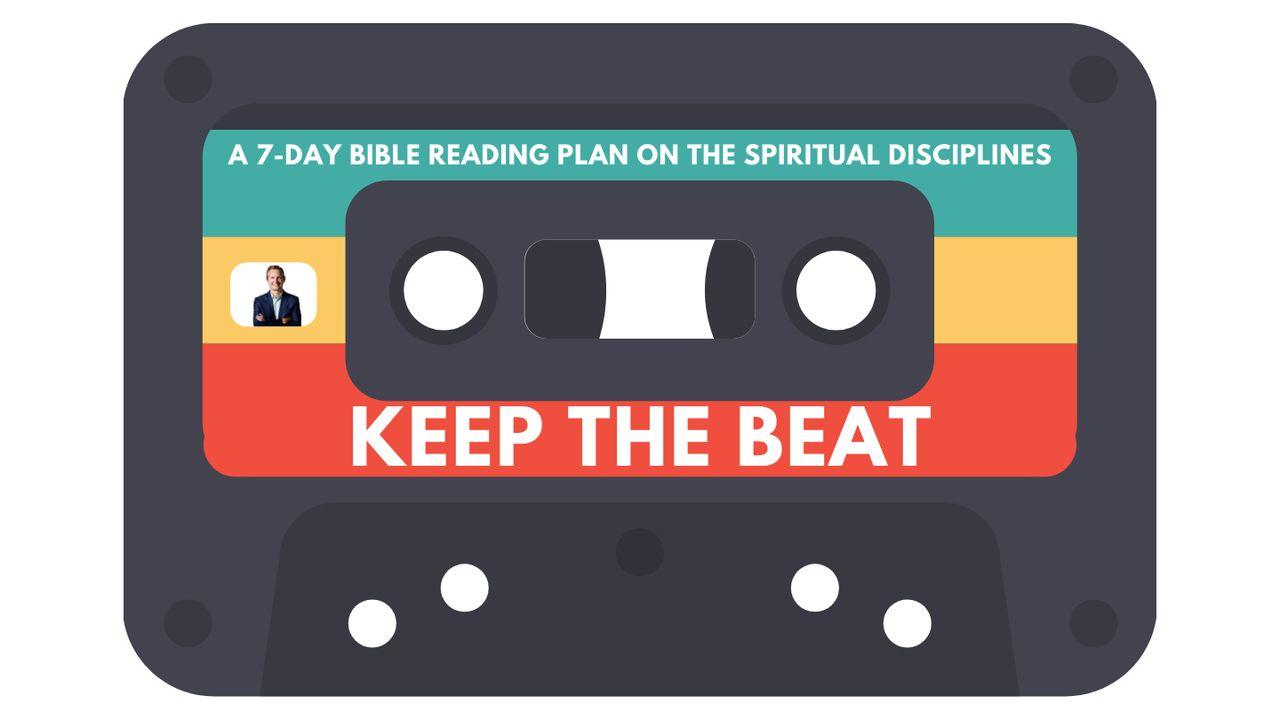Suunnitelman tiedot
Keep the BeatEsimerkki

DAY 2: TOO FAST
My first piano recital was at the end of fifth grade. My final selection was Beethoven’s “Fur Elise.” Once I learned to play the song, I became obsessed with playing it as quickly as I could. It was a personal challenge to test my dexterity and see how fast I could make my fingers fly across those keys without making a mistake. With some practice, I was playing it at more than three times its intended speed. My elderly piano instructor was not impressed.
“Who wrote this music?” she asked.
“Beethoven.”
“That’s right,” she replied. “Which means he gets to decide the tempo. And what does it say there at the top?”
“Allegro,” I responded, sheepishly.
“Very good. Now, let me hear it played allegro.”
With much resignation, I would slow down and play it at the tempo she wanted, though I could never understand why she didn’t think playing it fast would be more impressive to the people attending the piano recital later that spring.
Life also has a way of speeding us up, and as John Mark Comer notes in his book The Ruthless Elimination of Hurry, there is a new epidemic of the modern world: “hurry sickness.” Among the ten symptoms he associates with this disease are restlessness, workaholism, emotional numbness, escapist behaviors, and slippage of spiritual disciplines.
The practice of Sabbath helps us to slow down so we can fill up. It’s a weekly discipline that acts as a reset button on our hurried lives. It’s a time to fuel up so we’re not running on empty.
Sabbath comes from the Hebrew word shabbat, which means to stop. We stop working, we stop studying, we stop striving, we stop wanting. We cease from our doing so that we can slow down and fill up.
The Fourth Commandment instructs us in the practice of Sabbath.
We get six days to do our ordinary work, but the Lord said that the seventh day is different. It is “a day of rest dedicated to the Lord.” Sabbath is more than just a day off. It is a 24-hour period of rest and worship.
Pastor and spiritual formation expert Rich Villodas writes, “You could argue that the commandment most violated by everyone is the fourth. It’s also the commandment we often boast about breaking in our pride to express how tirelessly we work. Yet our lives are under the judgment of our own frenetic pace because we can’t stop.”
I know that there may be some who would say, “Wait, but Sabbath—that's in the Old Testament. We don't follow the Old Testament anymore. Jesus came and we live in the era of the New Testament.” In truth, I held that view for most of my life. Sabbath was two hours of church, not twenty-four hours of rest.
But Sabbath pre-dates the Ten Commandments. In fact, it even pre-dates the Fall. God worked for the first six days of creation and rested on the seventh day. If God rested from his work, how much more should we? John Mark Comer argues, “When we fight this work-six-days, Sabbath-one-day rhythm, we go against the grain of the universe.”
Sabbath is not a reward for checking off everything on the to-do list. We’ll rest, but only after we finish that presentation, clean the apartment, submit that assignment, answer those emails, visit the gym, make that Target run, pay those bills. Instead, we must rest from our work so that we can work from a place of rest.
I used to rest only after I got all my work done. So, I never rested. There was always more to do. But a Stanford study led by Professor John Pencavel found a sharp decline in productivity when a person worked over 50 hours a week. Beyond the 55 hour-mark, productivity decreased so much that any extra hours worked became pointless. Fifty hours is the equivalent of about six eight-hour workdays. Working on the seventh day, instead of resting, is less productive.
Jesus said that “The Sabbath was made to meet the needs of people, and not people to meet the requirements of the Sabbath.” I don’t keep the Sabbath because it’s a rule, but because it’s a gift. It was “made to meet the needs of people,” and I desperately need it.
To get started with a Sabbath rhythm, try this:
1. Choose a day. Traditionally, the Sabbath was observed from Friday night to Saturday night, but I don’t think the day matters as much as what you commit to do on that day.
2. Plan for it. I couldn’t spend a lazy Saturday sleeping late and then lounging on the couch watching college football all day if I wanted to be able to rest on Sunday. Instead, we needed to do our grocery shopping, clean the house, finish the laundry, and do all the other necessary chores.
3. Make time for rest and worship. Here’s a list of some of what our family enjoys:
* Go for a walk.
* Have face-to-face conversations.
* Play games.
* Read a book.
* Bake cookies.
* Go to church.
* Explore nature.
* Pray.
* Take a nap.
* Do a puzzle.
* Watch the birds.
* Play Pickleball.
Here’s the thing: it's not law. If it's life-giving, then do it. If it's life-draining, then don't do it. If it helps you to feel refreshed, go for it. It if leaves you weary, don’t do it. If it draws you closer to God, yes. If it pulls you away from Him, probably no.
When we are saying goodbye, we might wish another, “Good night!” or “Have a nice evening.” In Jewish tradition, they will wish each other well on the Sabbath by saying, “Shabbat, Shalom.”
May you flourish from your rest and worship. May your Sabbath bring you shalom. Amen.
REFLECTION
The practice of Sabbath helps us to slow down so we can fill up. It’s a weekly discipline that acts as a reset button on our hurried lives. How can you begin the journey to add or improve your weekly Sabbath to make it a time of rest and worship?
Raamattu
Tietoa tästä suunnitelmasta

We often struggle to keep a steady rhythm to our lives. We discover that we have become too fast, too free, too loud, or too weak. We fall out of the natural rhythm God intended for us to enjoy. Thankfully, He has given ...
More









